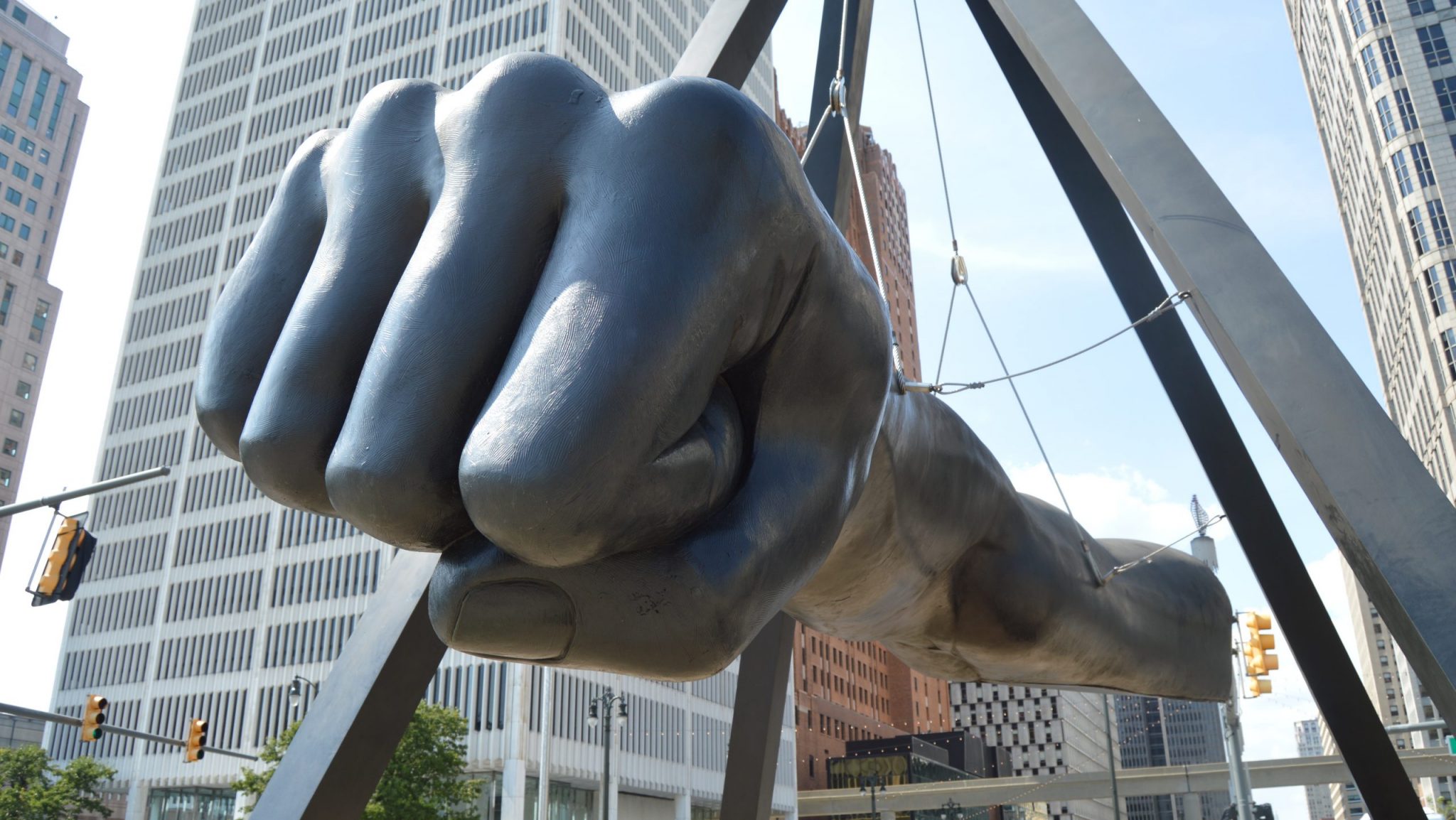Detroit Today: What’s going on with Detroit’s Reparations Task Force?
Task force members Maurice Weeks and Executive Committee Co-Chair Lauren Hood both announced their resignations at the body’s latest meeting.

"The Fist" monument in downtown Detroit symbolizes boxer Joe Louis' fight in the ring, as well as outside the ring against racial injustice.
About a year ago, Detroit created its Reparations Task Force to research historical discrimination and harm done against Black Detroiters and develop recommendations for housing and economic development programs that address it.
The 13-member body, approved by 80% of Detroit voters in a 2021 ballot measure, officially formed in February of last year — consisting of four executive members appointed by Council President Sheffield and nine general members.
At the task force’s latest meeting in December, task force members Maurice Weeks and Executive Committee Co-Chair Lauren Hood both announced their resignations, citing concerns over the functionality of the body.
So where does the task force stand now, and what are its goals as it shifts to its second year of work? Michigan Democratic Black Caucus chair and task force chair Keith Williams, Bridge Detroit reporter Malachi Barrett, and Linda J. Mann, co-founder of the African American Redress Network, joined Detroit Today on Tuesday to discuss.
Subscribe to Detroit Today on Apple Podcasts, Spotify, Google Podcasts, NPR.org or wherever you get your podcasts.
Guests:
Malachi Barrett is a reporter for Bridge Detroit covering the city of Detroit and Detroit’s Reparations Task Force. He says that while the task force has faced issues early on, many anticipated the work to be particularly challenging.
“We all expected this to be very complicated and difficult work that will take some time,” said Barrett.
Keith Williams is the chair of Detroit’s Reparations Task Force and the Michigan Democratic Black Caucus. He says if the task force is taking a long-view approach to accomplishing its goals.
“I just tell people: ‘Have patience.’ Reparations — they’ve been talking about that for years,” said Williams.
Linda J. Mann is a co-founder of the African American Redress Network (AARN), a collaboration between Columbia University and Howard University. The AARN is consulting for Detroit’s Reparations Task Force. She says AARN has worked with many groups to advance justice.
“In Detroit, we will be implementing an impact analysis using the United Nations sustainable development goals,” said Mann.
Justin Hansford is also a co-founder of the African American Redress Network. He is an associate professor of law at Howard University School of Law and executive director of the Thurgood Marshall Civil Rights Center. He says the AARN does a lot to support racial redress groups like the one in Detroit.
“Whether it involves legal support or scholarly historical researcher or organizing work to get the community out and organized to fight back — anything to be a support, we’re going to do that,” said Hansford.
Listen to Detroit Today with host Stephen Henderson weekdays from 9-10 a.m. ET on 101.9 WDET and streaming on-demand.
Trusted, accurate, up-to-date.
WDET strives to make our journalism accessible to everyone. As a public media institution, we maintain our journalistic integrity through independent support from readers like you. If you value WDET as your source of news, music and conversation, please make a gift today.

